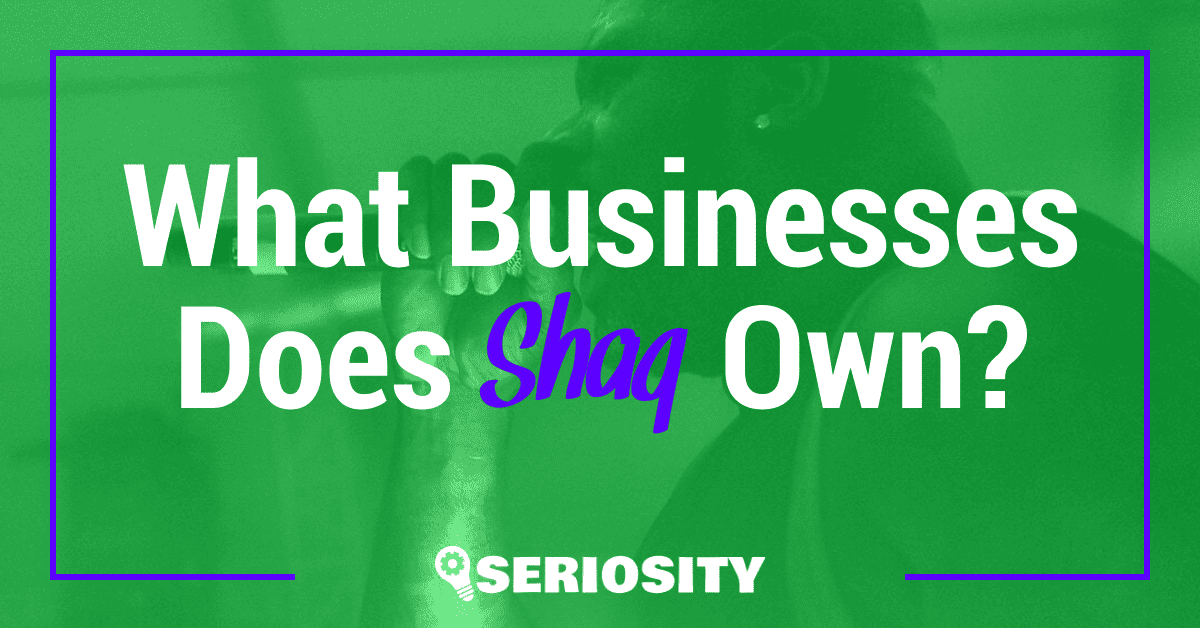Wesfarmers is a major player in Australia’s corporate landscape, tracing its beginnings back to a farmers’ cooperative in 1914. Today, Wesfarmers is renowned for its diversified portfolio, having a notable presence in the retail sector, among various other industries. The conglomerate has owned and operated some of Australia’s most familiar and influential retail brands, significantly shaping the shopping habits and experiences of Australian consumers.
At the core of Wesfarmers’ success is a strategic approach to ownership and management, with a considerable focus on acquisitions that align with their growth objectives. Through well-timed and shrewd investments in various sectors, Wesfarmers has not only expanded its retail reach but has also ventured into areas such as chemicals, energy, and fertilizers, maintaining a robust and dynamic presence in Australia’s economic fabric.
Key Takeaways
- Wesfarmers has a diversified business portfolio including several of Australia’s top retail brands.
- Strategic acquisitions and investments have been central to Wesfarmers’ corporate growth.
- Wesfarmers maintains a dynamic presence in Australia’s economy across multiple sectors.
Wesfarmers Company Overview
Wesfarmers is an iconic conglomerate that has firmly rooted itself as a staple in Australia’s corporate landscape, with deep ties to Western Australia and a prominent presence on the ASX.
History
Originating from Western Australia, Wesfarmers began as a cooperative in 1914, providing services and goods to the state’s rural community. It has grown exponentially since then. In 1984, Wesfarmers became a publicly listed company on the Australian Securities Exchange (ASX), marking a significant milestone in its evolution.
Wesfarmers Today
Today, under the guidance of CEOs like Rob Scott and his predecessor Michael Chaney, Wesfarmers is known as one of the largest and most diversified listed companies in Australia. From its headquarters in Perth, the conglomerate operates a variety of businesses including Bunnings Warehouse, a leader in home improvement, and Kmart, a high-performing discount department store. These key entities form part of Wesfarmers’ broad portfolio, meeting the needs of consumers across multiple sectors.
Key Business Sectors
Wesfarmers has built a robust portfolio comprising several key business sectors, reflecting its impressive growth from a small cooperative to one of Australia’s behemoths. Each sector plays a crucial role in their overall operations, catering to a variety of consumer and industrial needs across the country.
Retail Operations
In the realm of retail, Wesfarmers boasts a strong presence with well-known chains. These include Bunnings Warehouse, a leader in home improvement that has become a household name in Australia for DIY supplies, tools, and garden products. The company’s commitment to providing a wide range of merchandise, from home renovation to outdoor living solutions, reinforces its dominant position in the retail industry. For more detailed insights, visit Wesfarmers.
Industrial and Safety
Their industrial sector is well-established, offering a broad spectrum of safety products essential for various workplaces. Wesfarmers understands the critical importance of keeping workers safe, positioning itself as a trusted supplier of protective gear, workwear, and safety solutions. This commitment safeguards the well-being of employees across numerous industries.
Chemicals and Energy
The Chemicals and Energy division is another key area, encompassing the production and supply of chemicals, energy, and fertilisers. Their role in these industries is to ensure high-quality products and services that support both domestic and commercial users, underscoring the company’s diversification and adaptability in the ever-evolving market.
Others
Wesfarmers also includes a variety of other businesses that may not fall neatly into the above categories but are nonetheless integral to their wide-ranging portfolio. These diverse operations further illustrate the company’s expansive reach and ability to cater to a multitude of sectors and consumer needs.
Major Wesfarmers Brands
Wesfarmers is a prominent player in the Australian retail sector, proudly owning a variety of leading brands that are household names across the nation. These brands are known for their significant market presence and loyalty among customers.
Bunnings Warehouse
Bunnings is the top destination for home improvement and outdoor living, offering an extensive product range to both individual consumers and commercial tradespeople. This brand stands as a beacon for DIY enthusiasts and professionals alike, due to its comprehensive offerings and expert advice.
Kmart Group
The Kmart Group, part of Wesfarmers’ portfolio, operates Kmart and Target stores. These well-recognized retail chains provide customers with a wide selection of apparel, home goods, and everyday essentials, ensuring affordability without compromising on quality.
- Kmart distinguishes itself with its budget-friendly prices and trendy product lines.
- Target, while similar to Kmart, often focuses on slightly higher-end products within the affordable segment.
Officeworks
Officeworks plays a pivotal role as Australia’s largest supplier of office and education products. Catering to students, businesses, and individual consumers, Officeworks is praised for its comprehensive range of supplies and technology solutions, coupled with helpful services to enhance the purchasing experience.
Industrial and Safety Brands
Wesfarmers extends its reach into the industrial sector with reputable brands involved in the distribution of workwear, safety equipment, and industrial supplies.
- Blackwoods offers a vast inventory of industrial tools and safety products, being the go-to resource for professionals seeking reliable and high-standard equipment.
- Coregas is another vital division, providing industrial gases for various applications, from healthcare to welding.
These industrial businesses within Wesfarmers’ umbrella affirm the conglomerate’s commitment to serving a diverse array of customer needs, both in the consumer and industrial realms.
Financial Performance
Wesfarmers Limited has demonstrated robust financial health, reflected in its impressive revenue, net income, and market capitalization figures. This directly impacts its stakeholders, which include its diverse base of shareholders.
Revenue and Net Income
For the fiscal year ending on 30 June 2023, Wesfarmers reported a strong financial position. The company’s 2023 annual report highlights its total revenue and net income, solidifying its status as a major player in the Australian market. These financial metrics are crucial indicators of Wesfarmers’ financial health and its ability to grow and invest in future ventures.
Market Capitalization
Wesfarmers’ presence on the Australian Securities Exchange is marked by a significant market capitalization, reflecting the aggregate value the market places on the company. Market capitalization is a testament to investor confidence and the company’s long-term growth prospects. Detailed information can usually be found on financial news platforms or investment reports specifically related to Wesfarmers.
Shareholders
Shareholders of Wesfarmers range from individual retail investors to large institutional ones. Their equity in the company affords them a proportional share of its success. Shareholder value is influenced by both revenue streams and net income, which is why the financial performance of Wesfarmers is continually evaluated by stakeholders involved. The investor relations section of Wesfarmers provides regular updates on aspects that could affect shareholder interests.
Strategic Moves
In their strategic maneuvers, Wesfarmers has made decisive acquisitions and divestments, continually reshaping its business portfolio to respond to market demands and opportunities.
Acquisitions
Bunnings Warehouse: Upon acquiring Bunnings, Wesfarmers expanded its reach in the home improvement and outdoor living space, making it a cornerstone of its retail sector.
Catch Group: Through the acquisition of Catch Group, an online retailer, Wesfarmers enhanced its competence in the e-commerce domain, hoping to bolster the position of its department stores in the digital marketplace.
API Takeover: The attempted takeover of Australian Pharmaceutical Industries (API) reflects Wesfarmers’ strategy to venture further into the health and wellness sector, utilizing substantial financial resources to potentially add to their diverse portfolio.
Demergers and Divestments
Coles Demerger: In a significant demerger, Wesfarmers separated from supermarket giant Coles, a move that streamlined Wesfarmers’ focus on retail industries with higher growth potential.
Other Divestments: Consistently evaluating their portfolio, Wesfarmers has also divested from various businesses that no longer align with their strategic focus, ensuring sustained profitability and adaptability in a competitive market landscape.
Innovation and Growth
Wesfarmers is not only a prominent name in Australian retail, but it’s also a company at the forefront of digital innovation. With a targeted strategy to marry traditional retail with digital technology, they are shaping the future of Australian commerce.
Wesfarmers OneDigital
Wesfarmers’ commitment to digital innovation is embodied in their initiative, OneDigital. OneDigital is a transformative strategy focused on harnessing the power of data and technology to deliver a seamless retail experience to consumers. Key components of this initiative are the OnePass subscription service, the data platform OneData, and the integration of online shopping channels to amplify retail presence.
- OnePass: This is an exclusive retail subscription program aimed at providing members with enticing offers and benefits across Wesfarmers’ various retail brands.
- OneData: A strategic move to consolidate and utilize data, OneData serves as the backbone for insightful decision-making and personalized customer experiences.
- Online Shopping: By bolstering their e-commerce capabilities, Wesfarmers is ensuring that they remain competitive and accessible in a digitized market.
- Flybuys: The company leverages their long-standing Flybuys loyalty program, integrating it with OneDigital to enhance customer rewards and engagement.
Each of these entities contributes to a cohesive ecosystem focused on growth, customer value, and innovation, showcasing Wesfarmers’ commitment to evolving in the digital age.
Wesfarmers in the Community
Wesfarmers, with its roots as a cooperative for Western Australian farmers, has grown into a company that affects many lives. Its role within Australian communities extends far beyond its business operations.
Cooperative Origins
Wesfarmers began as a cooperative in 1914, created to provide services and support to Western Australian farmers. This foundation fostered a sense of community and shared purpose, which remains evident in the company’s operations and ethos today.
Employment and Team Members
Wesfarmers is one of Australia’s largest private sector employers, providing jobs to about 120,000 team members across its various businesses. They place a significant focus on creating a supportive and constructive environment for their employees, acknowledging that their commitment and hard work are crucial to the business’s success.
Sustainability and Ethics
https://www.youtube.com/watch?v=S2ILRNS5CSg&embed=true
Wesfarmers places a strong emphasis on sustainability and ethics within its operations, focusing efforts on proactive environmental initiatives and comprehensive social responsibility strategies, which include energy conservation and partnerships, such as with Covalent Lithium.
Environmental Initiatives
Wesfarmers demonstrates a commitment to the environment through a variety of energy conservation projects and the reduction of greenhouse gases. They aim for operational efficiency that complies with environmental standards, investing in renewable energy sources and implementing energy-saving practices across their businesses.
- Investment in Renewable Resources: Embracing renewable energy to power operations, reducing dependence on non-renewable sources.
- Partnering with Covalent Lithium: Engaged in a joint venture focused on ethical sourcing and production of lithium, which is vital for energy storage solutions.
Social Responsibility
As part of their responsibility to the wider community, Wesfarmers ensures ethical sourcing and supports the communities in which it operates.
- Ethical Sourcing: Strict guidelines to ensure all products are sourced responsibly.
- Community Support: Programs and partnerships aimed at community development and support.
Wesfarmers remains transparent in its efforts by reporting its sustainability performance, highlighting progress and accountability to stakeholders and the public at large.
Wesfarmers’ Subsidiaries and Investments
Wesfarmers is known for its diverse portfolio, ranging from retail to industrial sectors within Australia. Their ownership includes several significant subsidiaries and a selection of joint ventures and strategic alliances that contribute to their successful business model.
Significant Subsidiaries
- Bunnings Warehouse: Leading home improvement and outdoor living retailer in Australia.
- Kmart: One of the country’s most profitable discount department stores, delivering affordable products to consumers.
- Target Australia: Serves as one of the key players in the discount department store segment.
- Officeworks: Dominates the market in office supplies, recognized for its wide range and competitive pricing.
- BWP Trust: A real estate investment trust with notable holdings, primarily consisting of Bunnings Warehouse retail locations.
- Wespine Industries: A major player in the timber industry, supplying high-quality wood products.
Joint Ventures and Alliances
- Coles Group Limited: Formerly a subsidiary, Coles is now an independent entity after its demerger from Wesfarmers, although Wesfarmers retains a significant shareholding.
- Gresham Partners: Wesfarmers has a strategic interest in this leading Australian investment house, enhancing their financial services offerings.
This section covers the key components of Wesfarmers’ web of businesses, reflecting their influence across various sectors.
Understanding the Market
In the context of Australian retail, Wesfarmers’ position is robust due to a diverse portfolio that includes prominent companies. Understanding the competition and performing a thorough market analysis is essential to appreciate their market footprint in Australia.
Competition
Wesfarmers operates in a competitive landscape where it goes head-to-head with significant entities such as Woolworths. They are one of the chief rivals in various retail segments, which include supermarkets, department stores, and home improvement markets. The presence of Woolworths, among others, contributes to a dynamic competitive atmosphere where strategic positioning is crucial for retaining market share and ensuring growth.
- Major Competitors:
- Woolworths: Direct competitor in both supermarket and general merchandise sectors.
- Other retail chains: Various local and international players.
Market Analysis
Market analysis indicates that Wesfarmers’ companies such as Bunnings and Kmart maintain strong standings in their respective markets. Studies like those conducted by IBISWorld provide insights on market trends, customer preferences, and potential growth areas. Wesfarmers’ adaptive strategies and diversified portfolio situate it well amid the intricate dynamics of the retail sector.
- Key Analysis Points:
- Customer Preferences: Driven by value, quality, and convenience.
- Growth Areas: E-commerce and sustainable products are increasingly influential.
Frequently Asked Questions
This section addresses some of the most commonly asked questions about Wesfarmers’ operations and its place within the Australian market, providing specific details about its subsidiaries, retail breadth, leadership, and history.
What are some of the subsidiary companies that Wesfarmers operates?
Wesfarmers operates a range of subsidiary companies including home improvement and outdoor living businesses, as well as retailers in sectors such as general merchandise, apparel, and office supplies.
How extensive is the Wesfarmers retail portfolio in Australia?
The company’s retail portfolio in Australia is quite extensive, covering various sectors such as home improvement, office and technology products, and health and wellbeing products and services, managing a sizable presence across the country.
What is the relationship between Wesfarmers and Bunnings Warehouse?
Wesfarmers is the parent company of Bunnings Warehouse, which is a leading retail brand within the home improvement and outdoor living spaces in Australia.
Did Wesfarmers have a role in the establishment of Coles supermarkets?
Wesfarmers did not establish Coles supermarkets but acquired the Coles Group in 2007. The details can be further explored in the context of its overall portfolio management.
Can you tell me who is at the helm of Wesfarmers as the current CEO?
As of the knowledge cutoff in 2023, the current CEO of Wesfarmers is Rob Scott, who leads the company’s diverse operations and strategic direction.
What are the origins of Wesfarmers and who were its founders?
Wesfarmers was founded in 1914 as a cooperative by Western Australian farmers to provide services and merchandise. Its historical details can be explored in depth on its Wikipedia page.


























